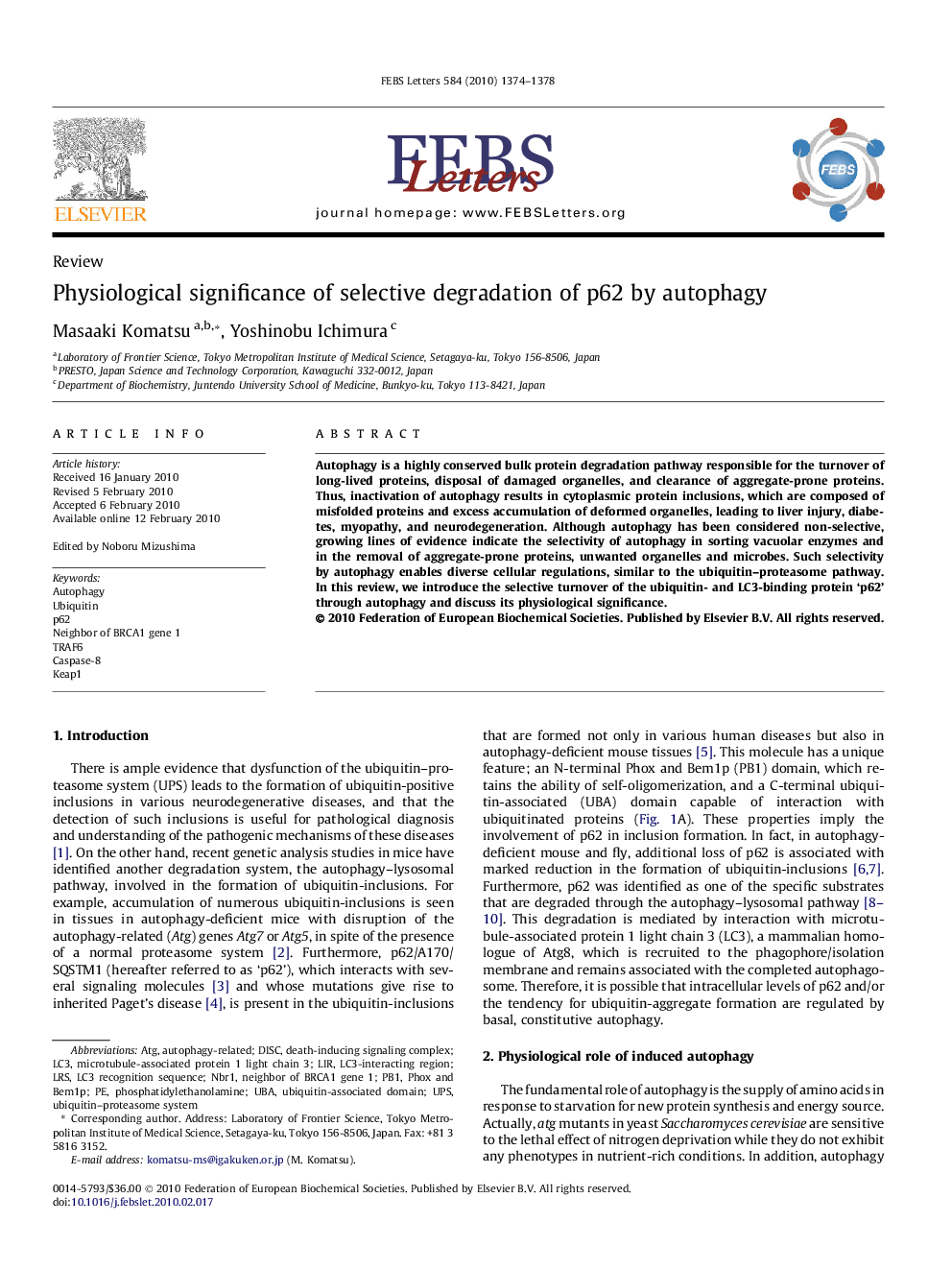| Article ID | Journal | Published Year | Pages | File Type |
|---|---|---|---|---|
| 2049251 | FEBS Letters | 2010 | 5 Pages |
Autophagy is a highly conserved bulk protein degradation pathway responsible for the turnover of long-lived proteins, disposal of damaged organelles, and clearance of aggregate-prone proteins. Thus, inactivation of autophagy results in cytoplasmic protein inclusions, which are composed of misfolded proteins and excess accumulation of deformed organelles, leading to liver injury, diabetes, myopathy, and neurodegeneration. Although autophagy has been considered non-selective, growing lines of evidence indicate the selectivity of autophagy in sorting vacuolar enzymes and in the removal of aggregate-prone proteins, unwanted organelles and microbes. Such selectivity by autophagy enables diverse cellular regulations, similar to the ubiquitin–proteasome pathway. In this review, we introduce the selective turnover of the ubiquitin- and LC3-binding protein ‘p62’ through autophagy and discuss its physiological significance.
